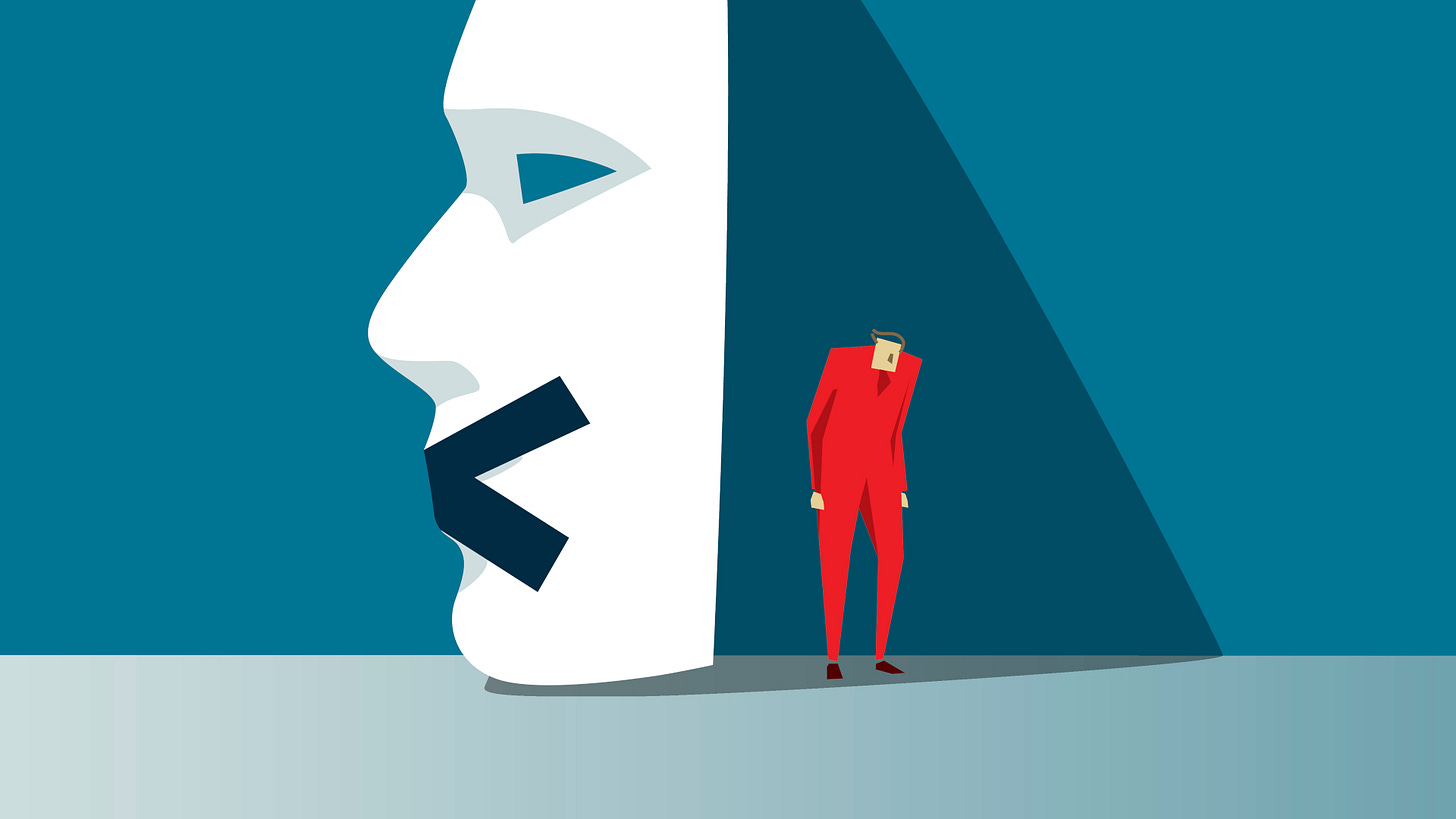Funding (Films) and the Politics of Inequity and Self-Censorship
From Film Funders to Trump, It's All About the Money
It's all about the money. It’s always been about the money. This isn’t news. But the ways in which money, or the lack of it, defines the way filmmakers, artists, and creatives and essentially EVERYTHING operates right now (especially under the country’s current kleptocracy) has never felt more tangible and painful. The full realization of this came to me due to a confluence of factors. Oddly enough, the first was seeing Trump try to shake down Ukraine’s President Volodymyr Zelenskyy. I realize the stakes and analogy are off, but I expect there are filmmakers who have been in the offices of a major entertainment corporation who have been put in a similar position; they have to smile, and try to be deferential and respectful to the person with the money, because they need that money desperately, even if the suggestions coming out of the mouth of the old white men in the suits and ties are complete bullshit. It’s like we’re all living in a “Shark Tank”/”The Apprentice” reality nightmare.
I had also been working on this article for Documentary Magazine titled “Democratizing Film Funding Was Never Going to Be Easy.” The article focuses on a particular contest run by Decentralized Pictures, which is a blockchain-based nonprofit organization that gives awards to filmmakers through its platform. It’s got big name backers like Roman Coppola and Bart Walker, and even Steven Soderbergh offered hundreds of thousands of dollars to Decentralized for a series of awards. But as one filmmaker mentioned, this particular contest was a “fiasco.”
I have no doubt that, as I wrote, “Decentralized offers the promise of a new paradigm that many filmmakers are yearning for, particularly right now as traditional funders—from larger media companies to cash-strapped nonprofits—have cut back on supporting independent documentaries,” but the realities of the way the contest and the company are run seemed to indicate that the enterprise isn’t that democratic or decentralizing, at all. As another filmmaker said, “They like to think of themselves as disruptors … but they’re just doing the same thing in a different way. They still have their thumb on independent filmmakers and they’re still gatekeepers.”
And that’s the way it always is, because there are people with money and then there are the filmmakers who need it, and the relationship between them will always be unequal because of this very difference. As another filmmaker said, “I didn't feel like they cared about us.”
Well, that says it all, doesn’t it? In a business, and yes, the making of films and documentaries are a business because it is a cash-intensive enterprise, there are often instances where the creators don’t feel cared for, but rather, used—used to build a business, used to build a library, used to build a brand, or even used just to make the funders feel better about themselves.
I also go back to this article I wrote about documentary company XTR last year for Filmmaker Magazine (“XTR is Trying to Solve the Crisis in Documentary Film, but Some Filmmakers Feel Betrayed”). There is a quote that Multitude Films president Jess Devaney said that continues to resonate with me. “It’s a funder’s responsibility to recognize their positional power and the vulnerability of filmmakers when they [the funders] fail to keep commitments,” she said.
For the XTR piece, I spoke to several filmmakers who felt ashamed, frustrated, mislead, and just like the filmmakers who participated in the Decentralized contest, they were dragged along for months and months with the temptation of a large pot of of money at a certain eventual point that kept them deferential, compliant, and genial.
In a report published last year titled “The Price of Passion: How Our Love of Documentary Filmmaking Impacts Our Mental Health” published by an organization called DocuMentality, the organization documents widespread cases of filmmakers feeling similarly depressed, frustrated, embarrassed, ashamed, and exploited. As one filmmaker described, “it feels like we’re crabs in a bucket, just trying to make it out alive.”
The report specifically describes a funding system that creates an imbalanced power dynamic that allows for abuse. As one filmmaker said, “Because funders are giving you the money, they expect you to be grateful that you have that chance and you get that platform.” Another emerging filmmaker shared, “I worked with a producer for my first feature, and I was so excited that someone was going to help me make a film. I signed away all my rights and it led to me being miserable and broke.” Or as one of the Decentralized filmmakers said to me, “When someone with a lot of money misses a meeting, you can’t get mad at them.”
Indeed, the behavior of those with the money and power in all these cases, whether Trump, Decentralized, or XTR follow a very similar pattern, with alluring promises of good things to come to filmmakers who are subservient, patient, and pliable; followed by periods of waiting and uncertainty or purposeful miscommunication and disinformation; and then eventually, little to show for it, at least in some of the cases. (In fairness to Decentralized and XTR, a number of filmmakers have received money from these organizations and have been happy with the companies. We’ll see what happens in Ukraine, but it doesn’t look good.)
To widen out this discussion to our current cultural climate, I have been struck by the amount of fear that is running through arts and culture organizations, universities, and even large entertainment companies because they all appear like Zelenskyy after his set-up at the Oval Office, or an independent filmmaker in the executive’s office, terrified that they won’t receive their money, or in the cases of some of these larger institutions, specifically, their money will get taken away (in the form of having their tax exempt status taken away or being prosecuted by the Justice Department, or labeled a terrorist organization).
All it took was the White House’s withdrawal of $400 million in federal research funds from Columbia University to completely gut the 1st Amendment and shut down the constitutional rights of “freedom of speech” and “to peaceably assemble” across Columbia and college campuses across our country. That’s a LOT of money, no doubt, but it’s shocking to see how democracy and democratic ideals can be so easily and quickly squashed with a simple act of economic extortion.
But because everyone needs money, we are now seeing a seismic wave of capitulation and self-censorship. Even as Trump’s illegal “executive orders” get struck down by the courts one by one, organizations remain scared for their survival, and are willing to cave for fear of losing the money they need to sustain themselves, but in so doing, they help the Trump regime further consolidate their power.
It seems short-sighted to me. And self-destructive. Because what are filmmakers and institutions willing to lose in order to receive their money? Are organizations willing to give up basic civil rights and human rights so they can continue to function? How low and self-demoralized are we all willing to go? And what kinds of people will we, and the organizations be, if we sell ourselves out and throw already vulnerable and marginalized populations under the bus in order to remain “compliant”? Will we be ineffective shells of our former selves, mere shills for the current government? And is that any way to survive or sustain ourselves?
A colleague recently forwarded me an Op-Ed penned by Ai Weiwei in 2017 from the New York Times called “How Censorship Works.” In the piece, the artist describes a process that appears to be currently happening right under our feet. I will leave it to him to describe:
“The act of kowtowing to power in order to receive small pleasures may seem minor; but without it, the brutal assault of the censorship system would not be possible. For people who accept this passive position toward authority, ‘getting by’ becomes the supreme value. They smile, bow and nod their heads, and such behavior usually leads to lifestyles that are comfortable, trouble free and even cushy….
“People who willingly censor themselves are vulnerable to moral challenges of many kinds. They have never been victims and never will be, despite their occasional show of tear wiping. Each time they display their servility, they bring warmth to the hearts of the authoritarians and harm to people who protest. Their craven stance, as it becomes widespread, also becomes the deeper reason for the moral collapse of our society. If these people believe that their choice to cooperate is the only way to avoid victimhood, they are embarking on an ill-fated journey in the dark.”






Excellent framing and points, Anthony. If you're not already familiar, check out the newsletter Nonprofit AF. Vu has been illuminating the power issues between grantors and grantees/gatekeepers and makers (etc) for years. And although his nonprofit world is more that of service providers, his takes all apply to ours too.
always insightful!